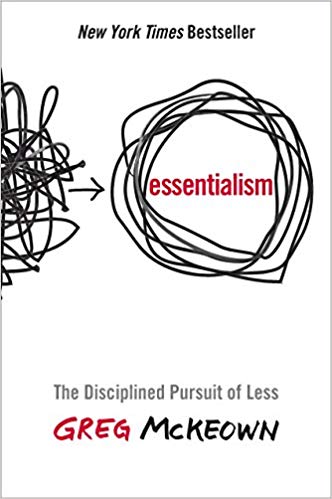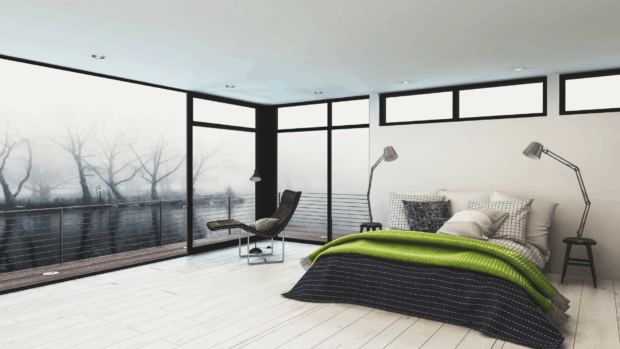Minimalist living is a movement that is rapidly growing in popularity, fueled mostly by a desire to take a step back from our fast-paced, materialistic world. It’s a movement that offers several benefits to those who participate, but one that comes with a few necessary sacrifices as well.
For many minimalists, the notion of getting rid of excess stuff and living based on experiences appeals to a lot of people. Living with less can leave you with a clear mind, debt-free and more time to spend with your loved ones.
If you are interested in learning more about minimalist living, here is everything you need to know about the movement.
What is Minimalist Living?
Minimalist living is centered around the idea of living with less. This doesn’t mean that you have to give up all of the things you enjoy and embrace a life of poverty. Instead, minimalism contends that a person can be happier and more successful in life if they cut out the excess, avoid buying things just for the sake of buying them and focus on the simpler blessings that life has to offer.
What are the Benefits of Minimalism?
While minimalism isn’t for everyone, this way of approaching life does offer a wide range of benefits. First and most obviously, adopting a minimalist lifestyle is sure to save you a lot of money and help you avoid going into debt.
Beyond saving your money on things you don’t need, minimalism also allows you to free up space in your home, mind, and life by eliminating unnecessary clutter in all three areas. Cutting out the things you don’t need frees you up to focus on the crucial things, relieves stress, and creates new space in your home.

Essentialism
by Greg Mckeown
⏱ 10 minutes reading time
🎧 Audio version available
Let’s be honest, you don’t need the stuff you have – get rid of it.
In our modern society, we are bombarded with messages continually telling us that we need to purchase some new items and that our lives won’t be complete without it.
In reality, people in the 21st century don’t need most of the things that they buy and don’t enjoy most of them either. Much of what we purchase is done out of impulse or persuasion rather than a real want or need.
According to the minimalist, such purchases bring more negativity than they do joy, and it’s better to cut them out. If you think about all of the items you own, chances are there are a good number of them that you don’t use or enjoy.
Get rid of these items and make room in your life by doing so. It may not be easy at first, but it is worth it in the end.
Be Clear About Your Why as a Minimalist
Before you embrace minimalism, it is essential to have a plan. Once more, minimalism doesn’t mean adopting a life of poverty or getting rid of everything you own.
Instead, minimalism means getting rid of the things you don’t need and readjusting your priorities so that you have more time, money, and mental energy to focus on the things you appreciate in life – and it is ultimately up to you to decide what that looks like.
Start slowly, and pick and choose which aspects of minimalist living are right for you. With a little thought and effort, you’ll be able to develop your unique definition of minimalism that is ideally suited for your life goals.
Experiences as a minimalist
One aspect of minimalism is valuing experiences over possessions. No possession lasts forever, even the possessions that we use and enjoy – and this goes double for possessions that we don’t need. The memory of an incredible experience, though, can last a lifetime.
Minimalism saves you money and time, and one great way to use the extra money and time you gain by avoiding the trappings of our commerce-driven society is to pursue new experiences.
Perhaps this means taking a vacation to someplace you’ve always wanted to visit, or maybe it means dedicating your new allotment of time and money to a hobby or passion that you enjoy.
Whatever the case may be, minimalist living is about embracing experiences over possessions – and you are sure to find a lot of benefits when you switch your focus from possessions to experiences.
Happiness as a Minimalist
If you approach minimalism, thinking that you will sacrifice happiness for some other greater purpose, you’ve got the wrong idea.
While minimalism is centered around giving up a lot of things, happiness is not one of them. Instead, the whole point of minimalism is to give up the things that are holding your happiness back.
Minimalism allows you to clear your life of waste and free you up to focus on the things that will bring you happiness. When you commit to using your time and money more wisely and pursuing the things you care about the most, happiness is most often the reward.
Get Comfortable Saying No as a Minimalist
One thing that a minimalist must be good at is the ability to say no. There’s no denying that we face many pressures from our society to spend as much money as possible and live a life of unfulfilling excess – and saying no to all of these pressures can sometimes be a real challenge.
The ability to say no, without shame or regret, is a valuable trait to possess. Being able to say no means that you can avoid spending time and money on things that you don’t enjoy – which means that you will have more opportunities to say yes to the things you enjoy.
Once more, minimalism isn’t really about sacrifice – it’s about knowing how to pick and choose the things you want and don’t want for yourself rather than caving to pressures and not being able to say no when you need to.
Friendships as a minimalist
In addition to choosing which items you can and cannot live without, minimalism may require you to take a closer look at your friendships as well.
The idea of purging friends from your life in the same way that minimalism dictates you should throw out unneeded clutter may sound harsh, but it is sometimes necessary.
For the determined minimalist, life is for the living and should not be wasted on friends who are high maintenance or more trouble than they are worth. Some friendships are not supportive of a minimalist lifestyle, and some friendships are not supportive of your happiness.
Instead, fewer, more meaningful relationships are sure to better serve you in the end than a long list of acquaintances who demand more from you than they provide in return.
Meal prepping as a minimalist
Becoming a minimalist doesn’t mean you have to give up your love of delicious food. On the contrary, cooking healthy and tasty meals from home is one key aspect of minimalist living and may very well be one of the hobbies you choose to pursue your new money and time.
Buying in bulk and prepping meals ahead of time, though, is popular among minimalists for its cost-saving advantages.
Many minimalists will also focus on the consumption of organic foodstuffs, and others will become vegan. A new minimalist approach to food also considers the trauma to livestock and how consuming distressed meat, fish, and fowl will harm the human body with toxicity.
This new lifestyle is focused on adding value rather than value extraction to the nth degree. Giving back to the planet becomes a growing mindset in minimalist living.
Minimalist living doesn’t have set rules. Those who choose this lifestyle do so to follow their conscience, and there is no judgment of the extent to which they elect to embrace this lifestyle.
Essentialism, written by Greg McKeown, provides greater detail of how to live the minimalist life and the depth of experiences waiting for those who want to leave consumerism behind them to embrace a life worth living.
Being Grateful as a Minimalist
How does minimalist living equate to greater value? The New Millennials are a ‘feeling’ generation who value life experiences as opposed to possessions.
A greater quality of life is slowly replacing materialism and a return to good old-fashioned values. Less work stress and more time to play sounds like a better way to spend one’s time and is a wise evolutionary choice given the past 200 years.
As the minimalist, there are still plenty of reasons for you to be grateful – the only difference is that you get to decide for yourself what those reasons are by readjusting your focus and priorities.
How to Become a Minimalist
Becoming a minimalist starts with evaluating your life and determining areas of waste that can be cut without much sacrifice. This may include toxic relationships, excess items that you don’t need or enjoy, time-wasting activities such as social media, and more.
Everyone has such things that drag down their life, but only the minimalist takes a step back and decides to let go of these things. It’s essential to start slowly and carefully decide for yourself what a minimalist lifestyle should look like.
Choose quality over quantity, and decide one at a time the things that you should purge from your life, always taking time to revaluate how you feel after letting go of each one before you move onto the next. With this careful and deliberative process, you can slowly develop a minimalist lifestyle best suited for you.
What Is Snapreads?

With the Snapreads app, you get the key insights from the best nonfiction books in minutes, not hours or days. Our experts transform these books into quick, memorable, easy-to-understand insights you can read when you have the time or listen to them on the go.


